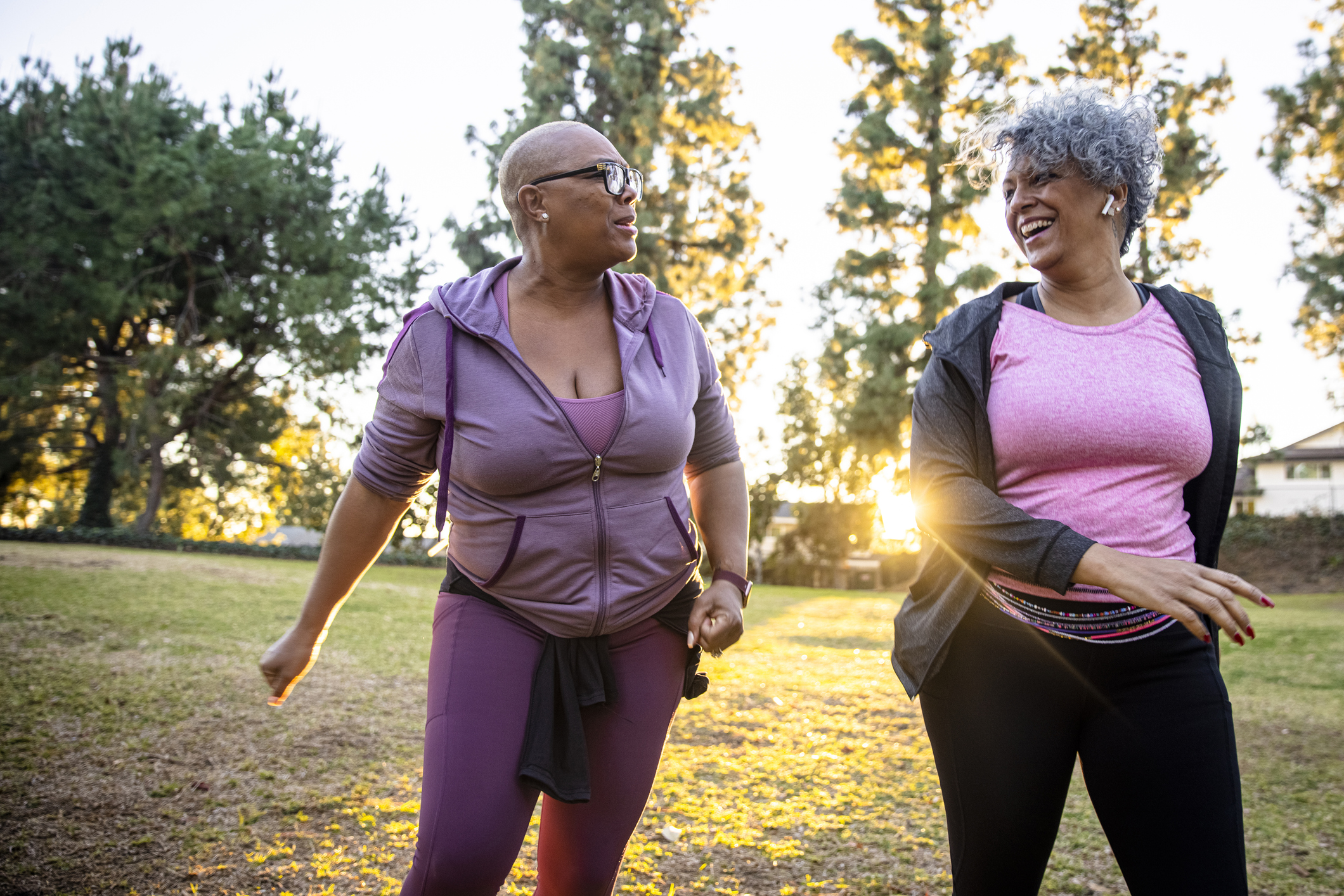Get Easy Health Digest™ in your inbox and don’t miss a thing when you subscribe today. Plus, get the free bonus report, Mother Nature’s Tips, Tricks and Remedies for Cholesterol, Blood Pressure & Blood Sugar as my way of saying welcome to the community!
Why exercise is essential to surviving colon cancer

Colon cancer is among the top five most frequently diagnosed cancers in the United States.
It’s also among the deadliest of cancers, for several reasons.
First, it’s one of the most aggressive (fast-moving) cancers.
Second, in its early stages, it’s often symptom-free.
Unless you’re getting a regularly scheduled colonoscopy (normally every ten years), colon cancer can go undetected until it reaches an advanced stage.
Exercise can reduce your chances of being diagnosed with colon cancer.
But what if you’ve already been diagnosed? What can you do to lower that risk…
Exercise’s powerful impact on cancer recurrence
Dr. Justin Brown has a personal interest in preventing colon cancer.
His father died of metastatic colorectal cancer when he was only 48.
Dr. Brown works at Pennington Biomedical Research Center in Louisiana and has led a study showing that exercise can prevent, and not just delay cancer recurrence in patients previously treated for colon cancer.
Between June 2010 and November 2015, 1,696 patients with stage 3 colon cancer from 654 academic and community oncology centers in the United States and Canada were enrolled in the study. Physical activity was calculated based on self-reporting during and after chemotherapy.
There were three key findings:
- During the study, the rate of cancer recurrence in physically active patients never exceeded that of physically inactive patients.
- Physically active people survived disease-free for about a year after surgery.
- Even when cancer recurred, those who exercised survived for three years after surgery.
The researchers concluded that postoperative physical activity is associated with improved disease-free survival by lowering the recurrence rate within the first year of treatment. This translates into an overall survival benefit.
They also found that the benefits of being physically active were more significant if the patient was active shortly after surgery. It’s considered safe for cancer survivors and is recommended during chemotherapy.
You should also know that previous studies have also found that exercise can also reduce the risk of cancer metastasis and by starving it of the glucose it needs to survive..
Other ways to reduce colon cancer risks
Exercise. As I mentioned earlier, exercise is strongly associated with helping avoid cancer in the first place. One study found a combination of strength training and aerobics cut slash the risk of cancer death by 28 percent.
Colonoscopy. I’ll admit that the prep before a colonoscopy is no picnic.
You may not be aware that there are other ways to screen for colon cancer. You can talk with your doctor about these alternatives — but get screened! Doctors are now recommending that screenings begin at age 45.
Cut your calories. A trial involving 154,942 people and spanning eight years found that people who lost weight benefitted from a 46 percent lower risk for colorectal adenoma. Weight gain increased the chances cancer would develop. Participants who put on more than 6.6 pounds over approximately five years were found to be at special risk for colon growths.
Eat the right foods. For starters, here are seven foods that help reduce your risk of colon cancer, even if your genes put you at high risk
Avoid red meat. Scientists have discovered that eating red meat leads to genetic mutations in the tissue of the colon that not only lead to colorectal cancer but make it more deadly.
Eat more fiber. This one may seem kind of obvious, but many of us don’t get enough fiber in our diets. Quite a few fiber-rich foods have been shown to protect you from colon cancer, including:
- broccoli
- black raspberries
- spinach
- tree nuts
Supplement vitamin D. Time and again researchers have found a strong correlation between vitamin D levels and colorectal cancer.
Go easy on the antibiotics. Aside from encouraging the growth of antibiotic-resistant bacteria in your gut, researchers think that the overuse of antibiotics may be behind the fact that colon cancer is increasing in people under 50.
Watch your alcohol consumption, especially if colon cancer runs in your family.
Editor’s note: Discover how to live a cancer prevention lifestyle — using foods, vitamins, minerals and herbs — as well as little-known therapies allowed in other countries but denied to you by American mainstream medicine. Click here to discover Surviving Cancer! A Comprehensive Guide to Understanding the Causes, Treatments and Big Business Behind Medicine’s Most Frightening Diagnosis!
Sources:
Study shows physical activity prevents, not just delays, cancer recurrence in patients previously treated for colon cancer — Eureka Alert
Association between physical activity and the time course of cancer recurrence in stage III colon cancer — British Journal of Sports Medicine












